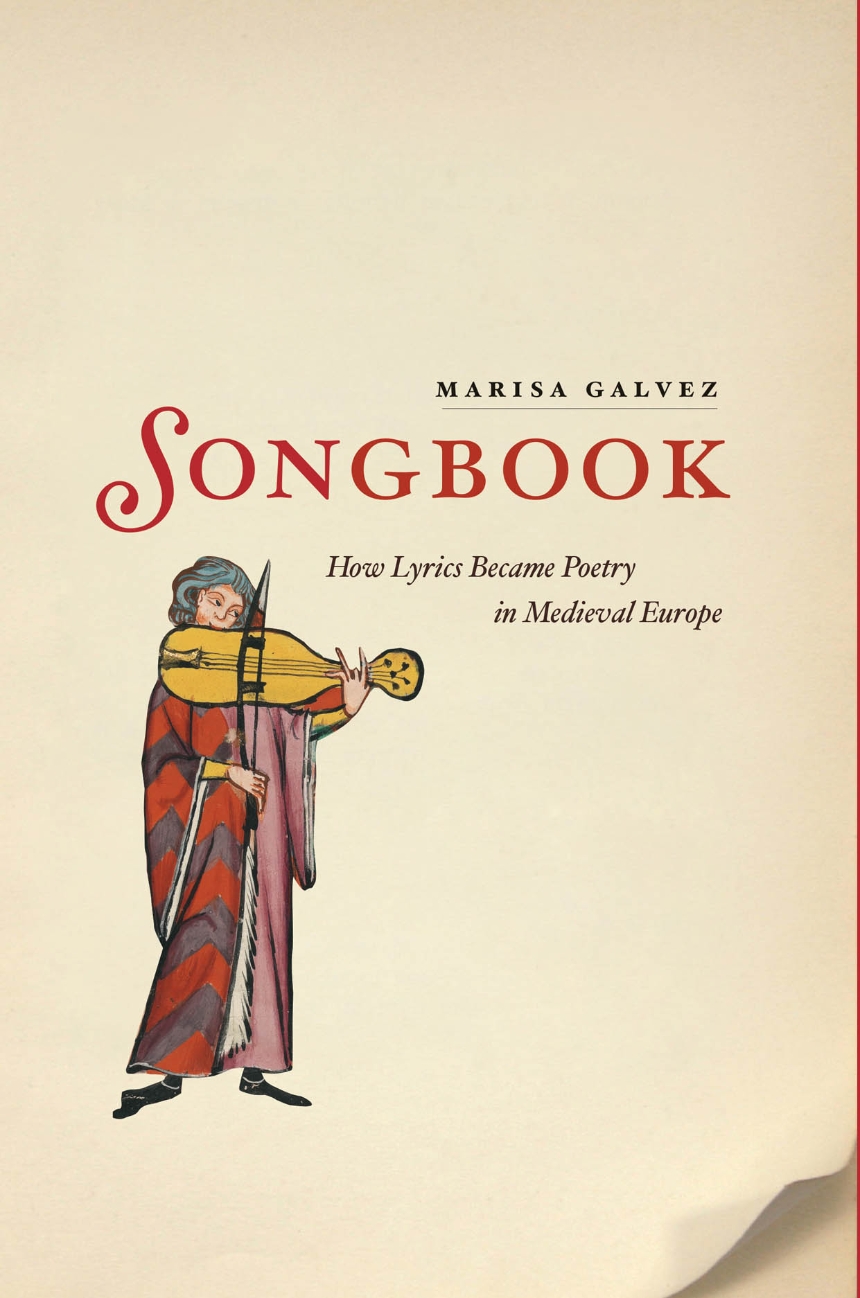Songbook
How Lyrics Became Poetry in Medieval Europe
Today we usually think of a book of poems as composed by a poet, rather than assembled or adapted by a network of poets and readers. But the earliest European vernacular poetries challenge these assumptions. Medieval songbooks remind us how lyric poetry was once communally produced and received—a collaboration of artists, performers, live audiences, and readers stretching across languages and societies.
The only comparative study of its kind, Songbook treats what poetry was before the emergence of the modern category “poetry”: that is, how vernacular songbooks of the thirteenth to fifteenth centuries shaped our modern understanding of poetry by establishing expectations of what is a poem, what is a poet, and what is lyric poetry itself. Marisa Galvez analyzes the seminal songbooks representing the vernacular traditions of Occitan, Middle High German, and Castilian, and tracks the process by which the songbook emerged from the original performance contexts of oral publication, into a medium for preservation, and, finally, into an established literary object. Galvez reveals that songbooks—in ways that resonate with our modern practice of curated archives and playlists—contain lyric, music, images, and other nonlyric texts selected and ordered to reflect the local values and preferences of their readers. At a time when medievalists are reassessing the historical foundations of their field and especially the national literary canons established in the nineteenth century, a new examination of the songbook’s role in several vernacular traditions is more relevant than ever.
296 pages | 7 color plates, 33 halftones | 6 x 9 | © 2012
Literature and Literary Criticism: Romance Languages
Reviews
Table of Contents
Acknowledgments
Introduction: The Medieval Songbook as Emergent Genre
Chapter One. Paradigms: The Carmina Burana and the Libro de buen amor
Chapter Two. Producing Opaque Coherence: Lyric Presence and Names in Songbooks
Chapter Three. Shifting Mediality: Visualizing Lyric Texts in Songbooks
Chapter Four. Cancioneros and the Art of the Songbook
Conclusion: Songbook Medievalisms
Bibliography
Notes
Index
